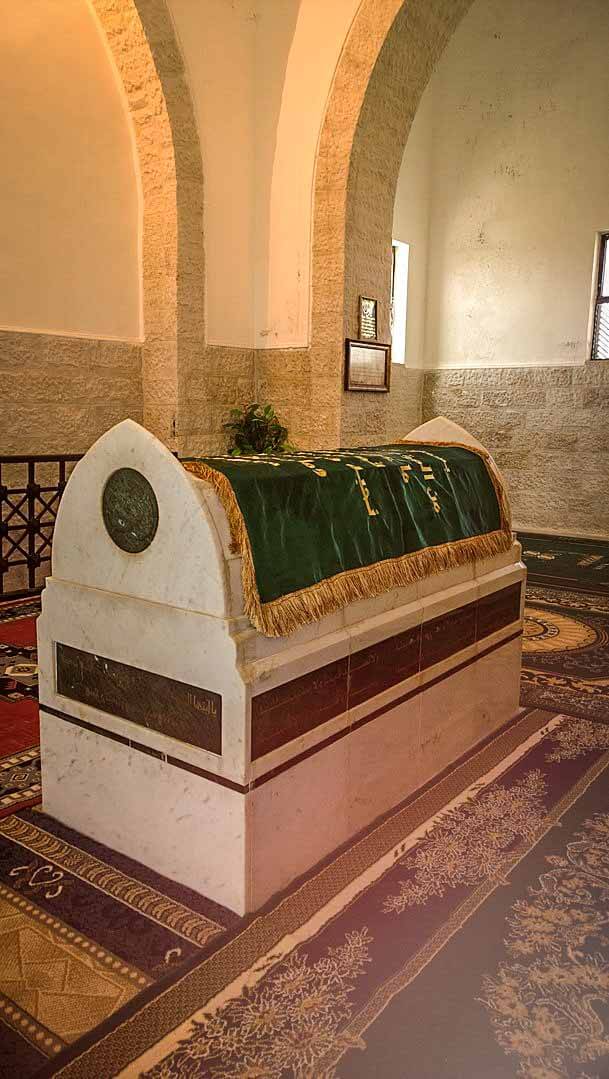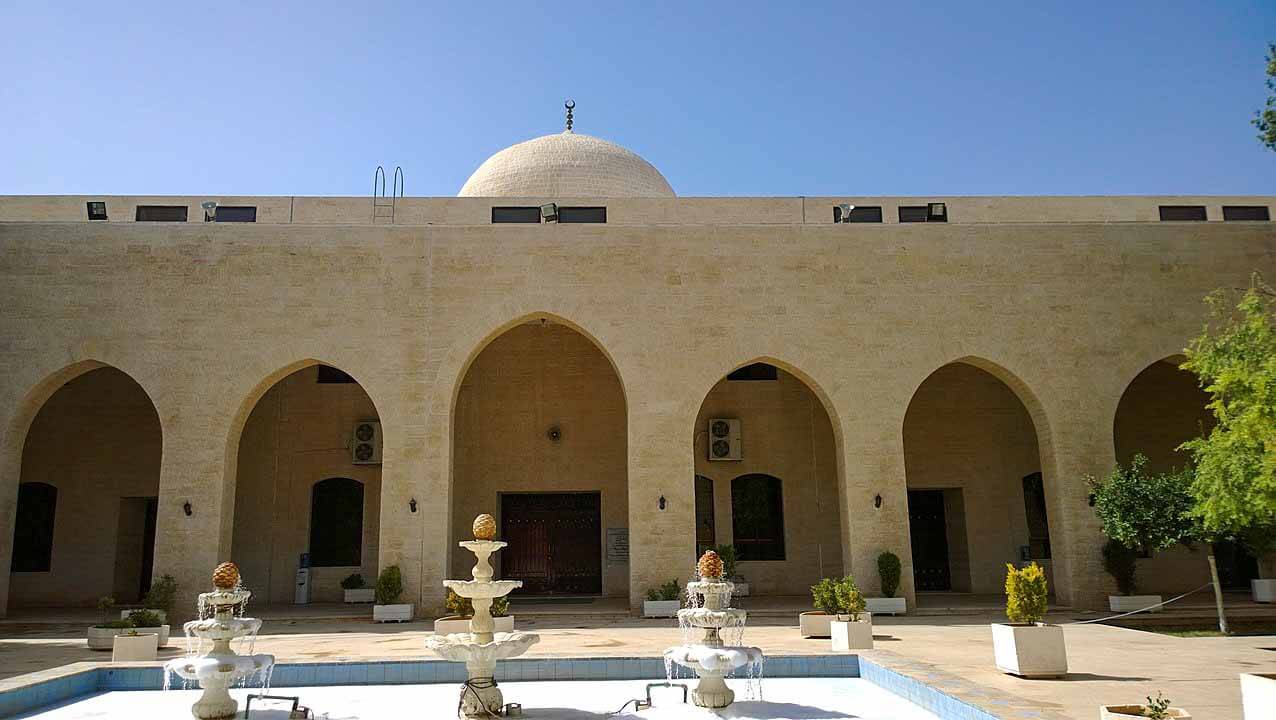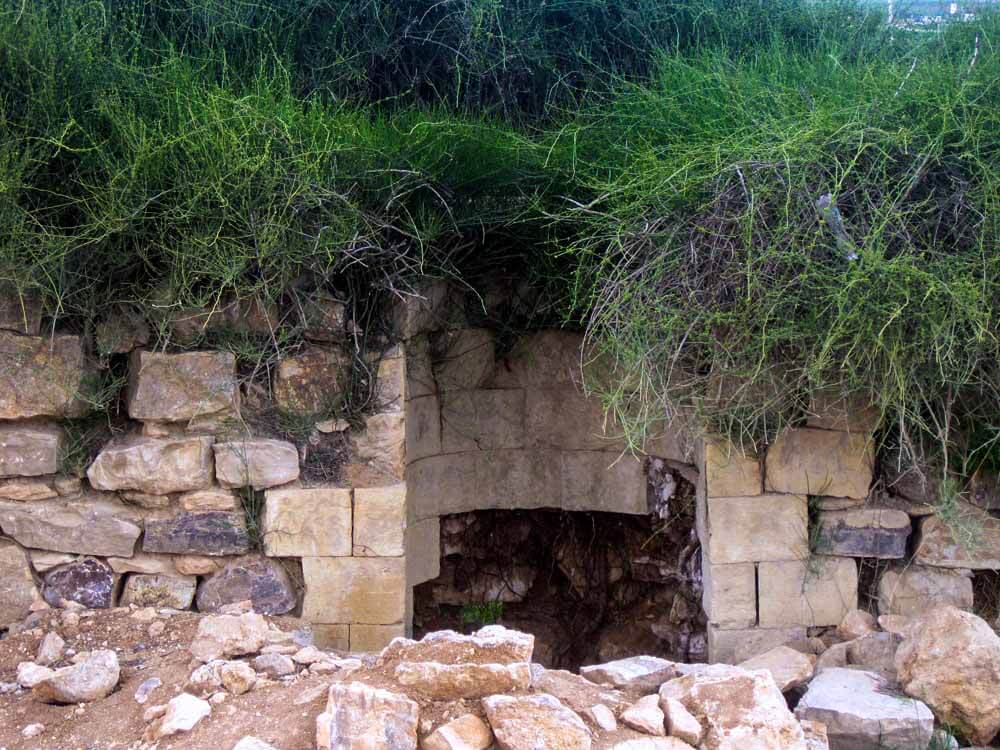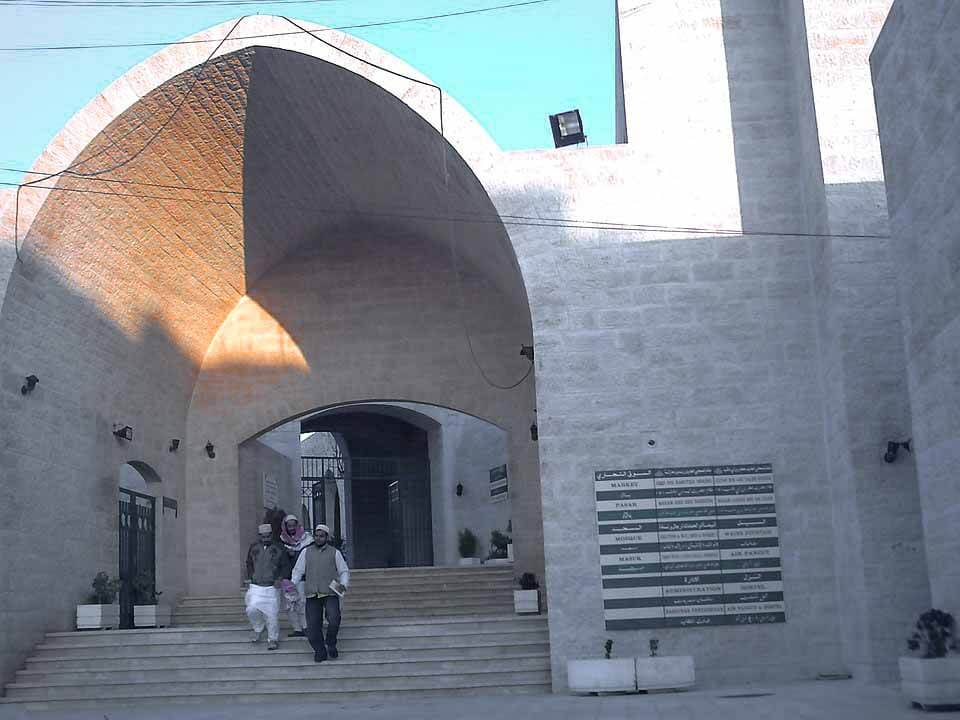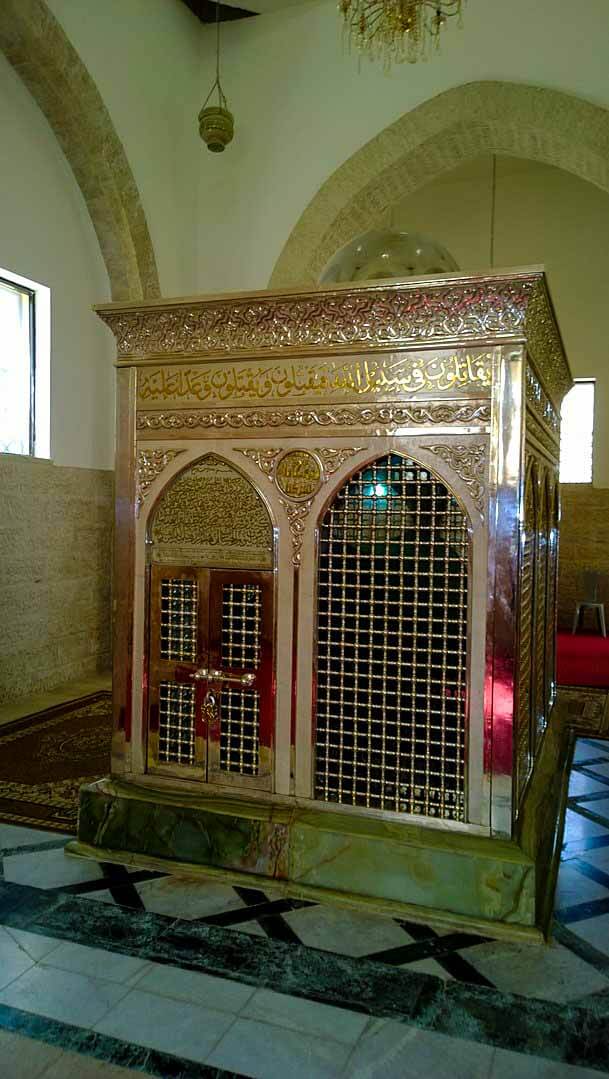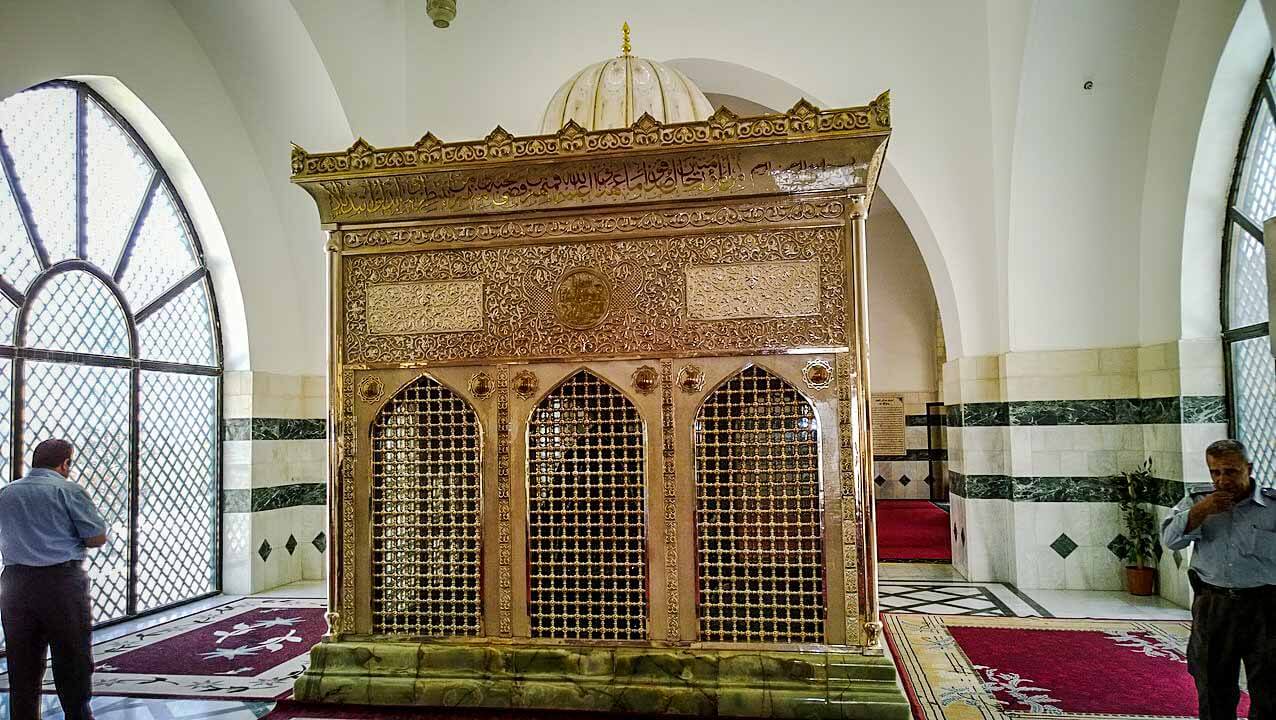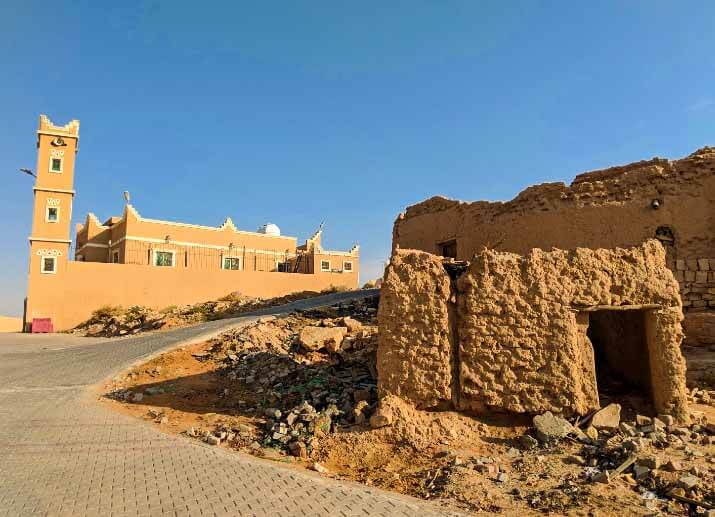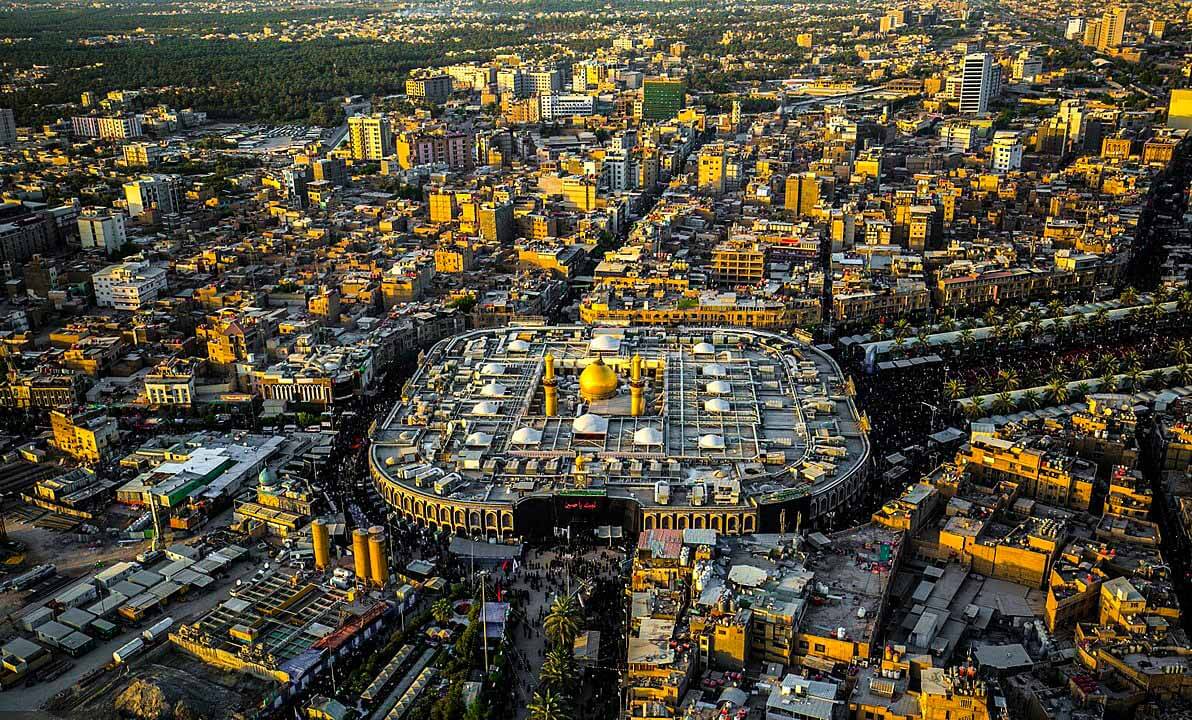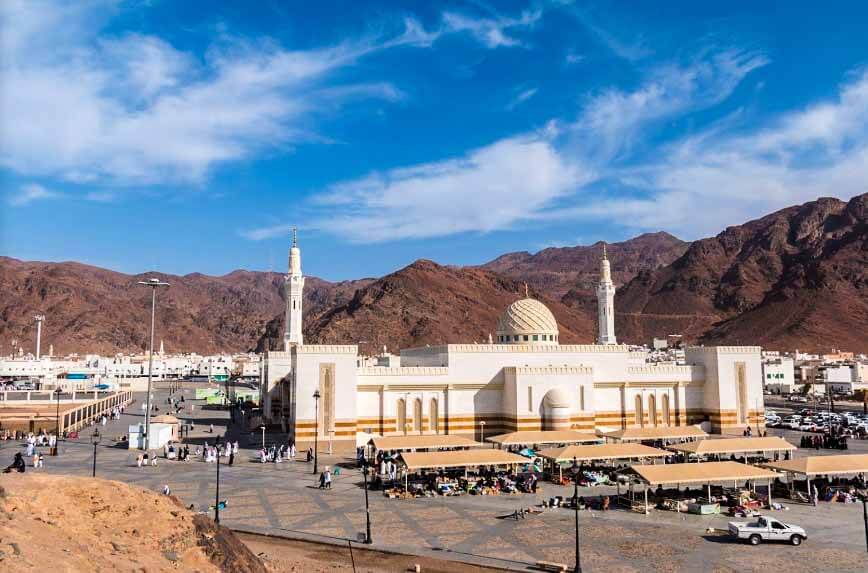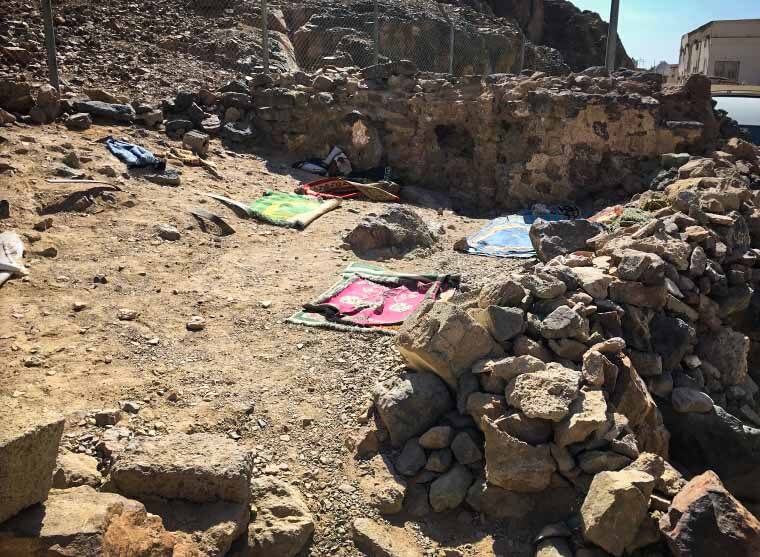Kerak, Jordan
Coordinates: 31.091999, 35.696849
The Battle of Mu’tah was fought in September 629 CE (1 Jumada al-Awwal 8 AH), near the village of Mu’tah, east of the Jordan River and Karak in Karak Governorate, between the forces of the Islamic prophet Muhammad ﷺ and the forces of the Byzantine Empire and their Arab Christian Ghassanid vassals.
Background
The Byzantines were reoccupying territory following the peace accord between Emperor Heraclius and the Sasanid general Shahrbaraz in July 629.
The Byzantine sakellarios Theodore, was placed in command of the army, and while in the area of Balqa, Arab tribes were also employed.
Meanwhile, Hz. Prophet Muhammad ﷺ had sent his emissary to the ruler of Bosra. While on his way to Bosra, he was executed in the village of Mu’tah by the orders of a Ghassanid official.
Mobilization of the armies
Hz. Prophet Muhammad ﷺ dispatched 3,000 of his troops in the month of Jumada al-Awwal 7 (AH), 629 (CE), for a quick expedition to attack and punish the tribes for the murder of his emissary by the Ghassanids.
The army was led by Hz. Zayd ibn Harithah رضي الله عنه; the second-in-command was Hz. Ja’far ibn Abi Talib رضي الله عنه and the third-in-command was Hz. Abd Allah ibn Rawahah رضي الله عنه.
When the Muslim troops arrived at the area to the east of Jordan and learned of the size of the Byzantine army, they wanted to wait and send for reinforcements from Medina Sharif.
Hz. Abdullah ibn Rawahah رضي الله عنه reminded them about their desire for martyrdom and questioned the move to wait when what they desire was awaiting them, so they continued marching towards the waiting army.
Battle
The Muslims engaged the Byzantines at their camp by the village of Musharif and then withdrew towards Mu’tah.
It was here that the two armies fought. Some Muslim sources report that the battle was fought in a valley between two heights, which negated the Byzantines numerical superiority. During the battle, all three Muslim were martyred one after the other as they took command of the force: first, Hz. Zayd رضي الله عنه, then Hz. Ja’far رضي الله عنه, then Hz. Abdullah رضي الله عنه.
After the passing away the latter, some of the Muslim soldiers began to rout.
Hz. Thabit ibn Al-Arqam رضي الله عنه, seeing the desperate state of the Muslim forces, took up the banner and rallied his comrades thus saving the army from complete destruction.
After the battle, Al-Arqam took the banner, before asking Hz. Khalid ibn al-Walid رضي الله عنه to take the lead.
Hz. Khalid ibn al-Walid رضي الله عنه
Hz. Khalid ibn al-Walid رضي الله عنه reported that the fighting at Mu’tah was so intense that he used nine swords which broke during the battle. Hz. Khalid رضي الله عنه, seeing that the situation was hopeless, prepared to withdraw.
He continued to engage the Byzantines in skirmishes, but avoided pitched battle.
Muslim losses
The casualties of slain of the Muslim side were recorded as the four of them from Muhajireen while eight the rest from Ansar. Their names were:
Hz. Zayd ibn Harithah رضي الله عنه
Hz. Ja’far ibn Abi Talib رضي الله عنه
Hz. Abd Allah ibn Rawahah رضي الله عنه
Hz. Masoud bin Al-Aswad رضي الله عنه
Hz. Wahab bin Saad رضي الله عنه
Hz. Abbad bin Qais رضي الله عنه
Hz. Amr ibn Saad رضي الله عنه (not Sa’d ibn Abi Waqqas’s son)
Hz. Harith bin Nu’man رضي الله عنه
Hz. Saraqah bin Amr رضي الله عنه
Hz. Abu Kulaib bin Amr رضي الله عنه
Hz. Jabir ibn ‘Amr رضي الله عنه
Hz. Amer bin Saad رضي الله عنه
Aftermath
It is reported that when the Muslim force arrived at Medina Sharif, they were berated for withdrawing and accused of fleeing.
Hz. Salamah ibn Hisham رضي الله عنه, brother of Abu Jahl was reported to have prayed at home rather than going to the mosque to avoid having to explain himself.
Had it not been for the skillful retreat, the entire army would have been destroyed. But when they returned to Al-madinah sharif, the muslims said to them, “O you who have taken flight: you have fled in the way of Allah”. Coming to their defense, the prophet ﷺ then said rather you are the ones who have retreatedm and i am your troop , referring to hte following verse :
“Whoever turns his back [to flee] from them that day —unless [he is] diverting to fight or retiring towards another troop— shall certainly earn Allah’s wrath, and his refuge shall be hell, an evil destination.”
“You did not kill them; rather it was Allah who killed them; and you did not throw when you threw,1 rather it was Allah who threw, that He might test the faithful with a good test from Himself.2 Indeed Allah is all-hearing, all-knowing. “
Quran Chapter 8 : 16-17





